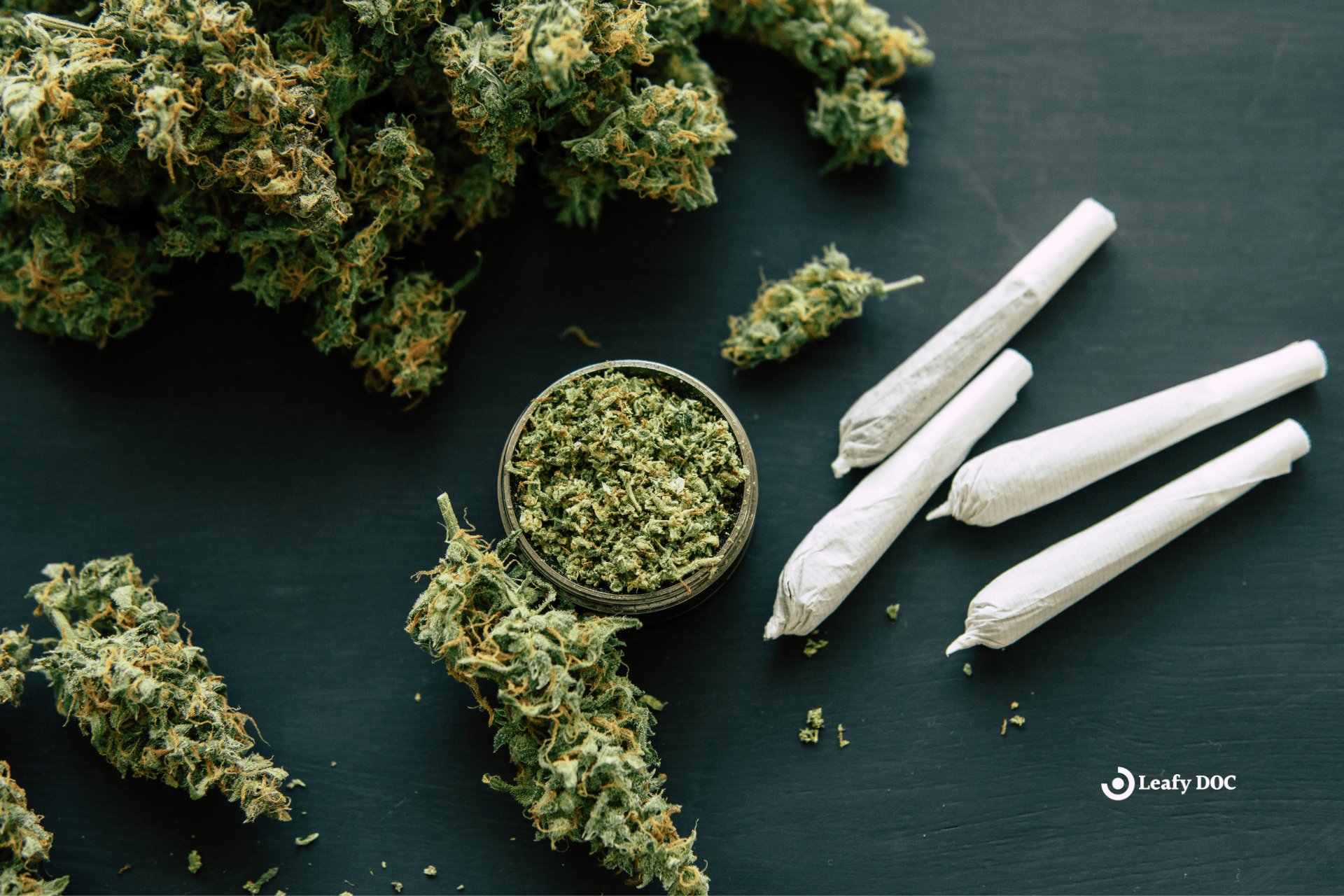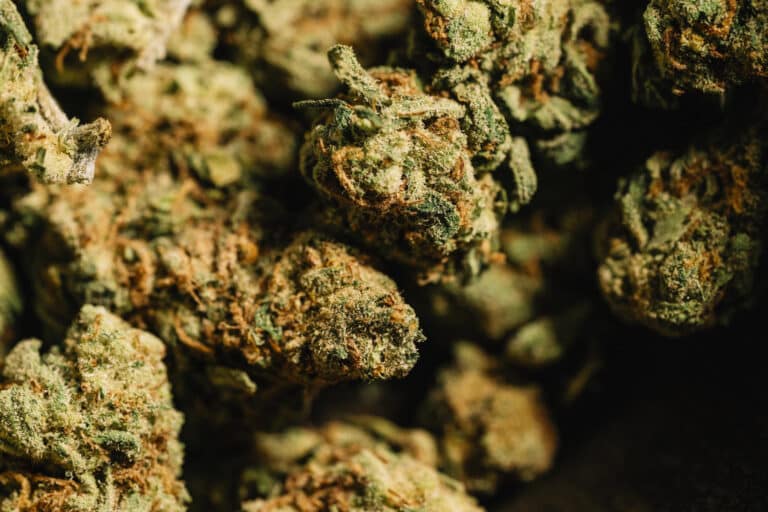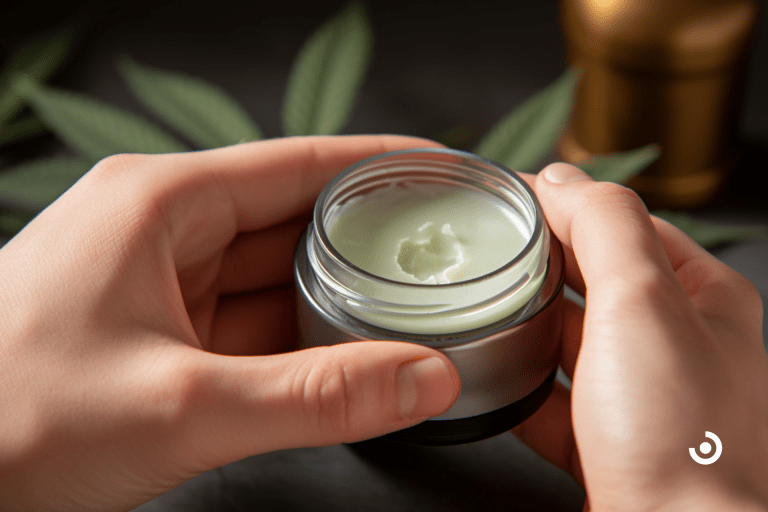THC P Uncovered: The Complete Guide
by Haley Mills · September 25, 2023
Uncover the truth about THC P and its mind-blowing effects. Dive into this ultimate guide to understand its legality and more. Don’t miss out on exploring the powerful world of THC P today! Click here for all the details.

Did you know that THC, or tetrahydrocannabinol, is the main active ingredient in cannabis? The compound is responsible for the psychoactive effects commonly associated with marijuana use.
In fact, according to a recent survey, over 22% of Americans reported using marijuana in the past year, with many seeking the euphoric and relaxing effects that THC provides.
But what exactly is THC, how does it work, and what are its potential benefits and risks?
THC works by binding to specific brain and central nervous system receptors, known as cannabinoid receptors. These receptors are part of the body’s endocannabinoid system, which regulates various physiological processes, including mood, appetite, and pain sensation.
When THC binds to these receptors, it can alter the release of certain neurotransmitters, leading to a range of effects on the body and mind. THC has a diverse range of effects that can vary from person to person, from feelings of relaxation and euphoria to increased appetite and altered perception of time.
In this article, we will explore the different methods of consuming THC, the potential benefits and risks associated with its use, and the legal considerations and regulations surrounding THC in various jurisdictions.
Whether you’re a curious cannabis enthusiast or want to be well-informed about this commonly used substance, this article will provide you with everything you need to know about THC.
What is THC and How Does it Work?
So, you’re probably wondering what THC actually is and how it works, right? Well, let’s dive in and explore this fascinating topic together!
THC, or tetrahydrocannabinol, is the primary psychoactive compound found in cannabis. It is responsible for the “high” sensation that people experience when using marijuana.
When consumed, THC interacts with the endocannabinoid system in our bodies. This system comprises receptors located throughout the brain and body that play a crucial role in regulating various physiological processes.
THC binds to these receptors, particularly the CB1 receptors found in the brain, and activates them. This leads to a cascade of effects, including mood, memory, perception, and pain sensation changes.
In addition to its recreational use, THC also plays a vital role in medical marijuana treatments. It has been found to have therapeutic properties and is used to alleviate symptoms associated with various medical conditions.
For example, THC effectively reduces nausea and vomiting in chemotherapy cancer patients. It also has analgesic properties and can provide relief from chronic pain. Furthermore, THC has shown promise in treating certain neurological disorders, such as multiple sclerosis and epilepsy.
THC is a fascinating compound that significantly impacts the endocannabinoid system and plays a crucial role in medical marijuana treatments. Its ability to interact with the CB1 receptors in the brain leads to various effects, both recreational and therapeutic. As research in this field continues to evolve, we’re likely to uncover more about THC’s potential benefits and uses.
The Effects of THC on the Body and Mind
When THC enters your system, it’s like a wave of relaxation washing over your body and mind.
THC, or tetrahydrocannabinol, is the main psychoactive compound found in cannabis. It acts on the endocannabinoid system in the brain, which regulates various physiological processes such as mood, appetite, and pain sensation.
The effects of THC on the body and mind can vary depending on the individual and the dosage consumed.
One aspect to consider is the long-term effects of THC on brain development in adolescents. Research has shown that using THC during adolescence can harm brain development. The brain is still developing during this period, and exposure to THC can affect cognitive functions such as memory, attention, and decision-making. It’s important for young individuals to be aware of these potential risks and to make informed decisions regarding cannabis use.
Another potential benefit of THC is its role in managing chronic pain. THC has been found to have analgesic properties, meaning it can help alleviate pain. It interacts with the endocannabinoid system to reduce pain signals and promote feelings of relaxation. THC is a potential option for individuals with chronic pain conditions such as arthritis or fibromyalgia. However, it’s important to note that more research is needed to fully understand the effectiveness and safety of using THC for pain management.
THC can have good and bad effects on the body and mind. It can provide relaxation and pain relief but can also have long-term effects on adolescent brain development. It’s crucial for individuals to weigh the potential benefits and risks of THC use and to make informed decisions based on their circumstances.
Different Methods of Consuming THC
To experience the effects of THC, try inhaling it through a vape pen or joint for a quick and intense high. Smoking THC is one of the most popular consumption methods due to its fast-acting effects. When you smoke THC, it enters your bloodstream through your lungs, allowing it to reach your brain quickly. This results in a rapid onset of effects, typically within minutes. The high from smoking THC is often described as more intense and immediate than other methods. However, smoking THC does have its drawbacks.
The combustion of the plant material can produce harmful byproducts, such as tar and carcinogens, which can harm the respiratory system. Additionally, smoking can harshly impact your throat and lungs, causing irritation and coughing.
Another popular method of consuming THC is through edibles. Edibles are food products infused with THC, such as gummies, brownies, or chocolates. One of the main advantages of edibles is their long-lasting effects. When you consume THC through edibles, it is metabolized by the liver and converted into a different compound called 11-hydroxy-THC, which is more potent and has a longer duration of action. This means that the effects of edibles can last for several hours, providing a more prolonged and consistent high. However, edibles also have their downsides.
The onset of effects can be delayed, often taking up to an hour or more to feel the full effects. This can lead to inexperienced users consuming too much, thinking they are not feeling anything, and then experiencing an overwhelming and uncomfortable high.
In recent years, THC-infused beverages have gained popularity in the market. These beverages, such as cannabis-infused sodas or teas, provide a convenient and discreet way to consume THC. They offer a different experience compared to smoking or eating edibles. THC-infused beverages are often formulated to have a lower dose of THC, making them suitable for those who want a milder high or prefer to microdose. Additionally, these beverages can be more socially acceptable in specific settings where smoking or eating edibles may not be appropriate. However, it’s important to note that the effects of THC-infused beverages can vary depending on the individual and the specific product. It is always recommended to start with a low dose and wait for the effects to kick in before consuming more.
Potential Benefits and Risks of THC Use
Using THC can provide various benefits and risks for users. On one hand, THC has been found to have several medical applications. It can alleviate symptoms of chronic pain, nausea, and muscle spasms. THC has also been shown to stimulate appetite and help individuals with certain medical conditions gain weight. In addition, THC may have anti-inflammatory properties and could potentially be used to treat conditions such as arthritis and inflammatory bowel disease. However, the medical applications of THC are still being researched, and more studies are needed to understand its potential benefits and risks fully.
On the other hand, the impact of THC on mental health is a topic of concern. While THC may provide temporary feelings of relaxation and euphoria, it can also adversely affect mental health. Heavy and long-term use of THC has been associated with an increased risk of developing psychiatric disorders such as schizophrenia and psychosis. Additionally, THC can impair cognitive function, memory, and attention span, impacting daily functioning and overall well-being. Be sure to use THC responsibly and in moderation to minimize the potential risks on mental health.
| Positive Effects | Negative Effects | Neutral Effects |
|---|---|---|
| Alleviates chronic pain | Increased risk of psychiatric disorders | Temporary relaxation and euphoria |
| Stimulates appetite | Impaired cognitive function | Potential anti-inflammatory properties |
| Helps with weight gain | Memory and attention span impairment | Still being researched |
In conclusion, using THC can provide both benefits and risks for users. It has various medical applications, but more research is needed to understand its potential fully. Additionally, THC can adversely affect mental health, particularly with heavy and long-term use. Individuals must be aware of these potential risks and use THC responsibly to minimize adverse effects.
Legal Considerations and Regulations Surrounding THC
THC’s complex legal landscape can be overwhelming and confusing for individuals seeking clarity on its regulations. One significant area to consider is the implications for workplace drug testing. Many employers have policies in place that prohibit the use of THC, even in states where it is legal for recreational or medical purposes. This can create a challenging situation for individuals who rely on THC for medical reasons, as they may lose their job if they test positive for THC.
In addition to workplace drug testing, there are also significant international variations in THC regulations. While some countries have legalized THC for medical or recreational use, others have strict laws against its use and possession. This can create complications for individuals who travel internationally or work in industries that require international travel. It is important for individuals to research and understand the specific regulations surrounding THC in the countries they plan to visit or work in, to avoid legal issues and potential consequences.
Overall, navigating the legal considerations and regulations surrounding THC can be complex, and it’s crucial for individuals to stay informed and aware of the implications for workplace drug testing and international travel.
Frequently Asked Questions
Can THC be detected in a drug test & how long does it stay in your system?
“Get ready to be blown away! THC can be detected in a drug test, and its stay in your system depends on various factors like consumption method. Remember, laws on THC and drug testing vary worldwide!”
Are there any potential long-term effects of THC use?
Long-term THC use can lead to cognitive impairment, affecting cognitive function. It may also contribute to developing or worsening mental health disorders, emphasizing the importance of responsible and informed use.
Can THC help treat medical conditions other than pain and nausea?
Can THC help treat medical conditions beyond pain and nausea? The potential benefits of THC for psychiatric disorders and its role in managing symptoms of neurological conditions are areas of ongoing research.
Is it safe to drive or operate machinery after consuming THC?
It is unsafe to drive or operate machinery after consuming THC due to the impairment levels it can cause. It is essential to follow guidelines and avoid these activities to ensure safety.
Are there any interactions between THC and other medications or substances?
Potential interactions between THC and antidepressant medications should be carefully monitored, as both substances can affect neurotransmitter levels. Combining THC with alcohol or other recreational drugs can amplify their effects and increase the risk of adverse reactions.
Last Updated: August 8, 2024
Get Approved for Your Medical Marijuana Card in Minutes!

Get Your Medical Card
Connect with a licensed physician online in minutes

Like This Article?
Share with your friends
Table of Contents
Keep Reading
-
Sativa vs Indica – Which one is right for me?
Curious about the differences between Indica and Sativa? Check out this blog post and discover the key distinctions between these two cannabis plant types.
-
Exploring The Effects Of THC On Sleep Patterns
Unveiling the Surprising Effects of THC on Sleep Patterns: Find out how this compound in cannabis can impact your restful nights. Click here to uncover the truth and improve your sleep!
-
5 Uses For Cannabis Infused Salve
Revolutionize your wellness routine with cannabis-infused salve! Explore the top 5 uses, from pain relief to skincare, and discover the endless possibilities. Click here to unlock the benefits of cannabis-infused salve today!



